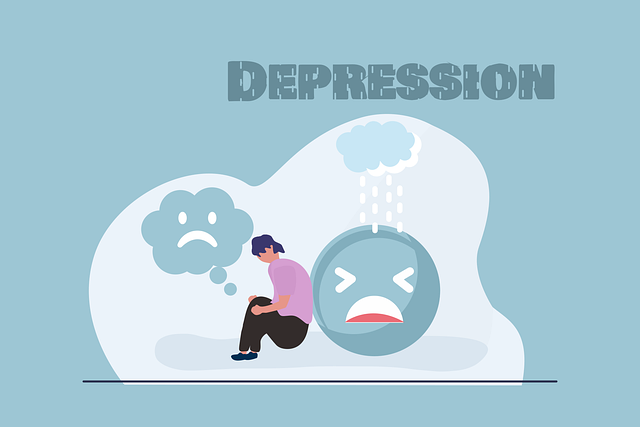Oregon has a comprehensive and robust mental health legal framework, comprising statutes and regulations, to protect residents' well-being while upholding their rights during crises. This system covers involuntary commitment, treatment durations, assessment procedures, discharge, and aftercare, ensuring fair and equitable navigation through Oregon's complex mental health regulations. Understanding these laws is crucial for both professionals and individuals, promoting ethical care, autonomy, and accessibility to services like counseling, psychotherapy, and medication management. Knowledge of Oregon mental health legislation empowers individuals to assert their rights, actively participate in treatment, and seek recourse if necessary, fostering accountability and patient well-being.
In Oregon, mental health legislation plays a pivotal role in ensuring access to quality care and protecting the rights of individuals facing mental health challenges. This article delves into the intricate web of Oregon’s mental health laws, providing an overview of key statutes and regulations that shape the landscape of mental health services. From understanding who these laws apply to, exploring inpatient care rights, examining outpatient services, to empowering legal recourse, each section navigates a crucial aspect of the state’s mental health legislative framework.
- Oregon Mental Health Laws: An Overview of Key Statues and Regulations
- Understanding the Legal Framework: Who Does It Apply To?
- Navigating Inpatient Care: Rights and Protections for Residents
- Outpatient Services and Community Support: A Look at Availability and Access
- Legal Recourse and Advocacy: Empowering Individuals with Mental Health Concerns
Oregon Mental Health Laws: An Overview of Key Statues and Regulations

Oregon has established a comprehensive mental health legal framework to ensure the well-being and rights of its residents. Understanding Oregon mental health laws is crucial for both individuals seeking support and professionals in the field. The state’s statutes and regulations are designed to provide effective services while safeguarding individual freedoms.
Key Oregon mental health laws include provisions for involuntary commitment, treatment, and detention periods. These laws balance public safety with the rights of those experiencing mental health crises. Regulations also outline procedures for assessment, discharge, and aftercare, ensuring a structured yet flexible legal framework. Navigating these Oregon mental health regulations is essential to ensure fair and equitable access to care and support for all Oregonians.
Understanding the Legal Framework: Who Does It Apply To?

In Oregon, the mental health legislation is a comprehensive set of guidelines and regulations designed to ensure adequate care and protection for individuals dealing with mental health issues. Understanding this legal framework is crucial when navigating the system, as it clarifies who these laws apply to and what rights and responsibilities different parties have. The Oregon mental health statutes cover a wide range of aspects, from patient rights and treatment options to provider duties and community support services.
These regulations are applicable to various stakeholders, including mental health professionals such as psychiatrists, psychologists, and social workers, as well as facilities offering mental health services like hospitals, clinics, and residential treatment centers. It also protects the legal rights of individuals with mental illnesses, ensuring they receive ethical and informed care while emphasizing their autonomy and privacy. By understanding these Oregon mental health laws, both professionals and individuals can actively participate in shaping a supportive and effective mental health care system.
Navigating Inpatient Care: Rights and Protections for Residents

Navigating Inpatient Care under Oregon Mental Health Laws provides individuals with a comprehensive understanding of their rights and protections. The state’s mental health regulations ensure that residents in inpatient facilities receive ethical treatment, respect for their autonomy, and access to adequate legal representation. Oregon mental health statutes emphasize informed consent, requiring healthcare providers to explain the nature of services, expected outcomes, and available alternatives clearly. This ensures patients make voluntary decisions about their care.
Moreover, these laws safeguard against arbitrary confinement, offering due process protections and regular review boards to monitor patient progress. The mental health legal framework in Oregon promotes transparency and accountability, ensuring facilities adhere to strict standards of care. Understanding these regulations empowers individuals to assert their rights, actively participate in treatment plans, and seek recourse if their rights are violated during inpatient care.
Outpatient Services and Community Support: A Look at Availability and Access

In Oregon, the mental health legal framework is designed to ensure that individuals with psychological disorders receive adequate care and support within their communities. Outpatient services play a significant role in this context, offering various therapeutic interventions and treatments for those who do not require hospitalization. These services include counseling, psychotherapy, and medication management, often provided by specialized clinics and community-based organizations. Understanding mental health legislation is crucial for both service providers and consumers to navigate the available resources effectively.
The Oregon mental health statutes emphasize accessibility and community integration, aiming to reduce the stigma associated with seeking help. Local communities have established robust networks of support, making it easier for individuals to access outpatient care. This approach not only promotes early intervention but also fosters long-term recovery by connecting people with necessary resources. By understanding the regulations governing mental health services, residents can actively participate in their own care and ensure they receive the appropriate level of support within the community.
Legal Recourse and Advocacy: Empowering Individuals with Mental Health Concerns

Understanding Oregon’s mental health legislation is crucial for individuals facing mental health concerns and those advocating on their behalf. The state has established a robust legal framework to protect the rights of persons with mental illnesses, ensuring they receive appropriate care and support. These laws empower individuals by providing clear guidelines on commitment, treatment, and recovery.
Oregon mental health regulations allow for voluntary and involuntary commitments, offering a balanced approach to intervention. This legal framework also mandates informed consent, ensuring patients understand their treatment options. Advocacy groups and legal aid organizations play a vital role in educating communities about these Oregon mental health statutes and assisting individuals in navigating the complex mental health legal framework. By raising awareness and providing support, they enable people with mental health issues to access the help they need while upholding their rights.
